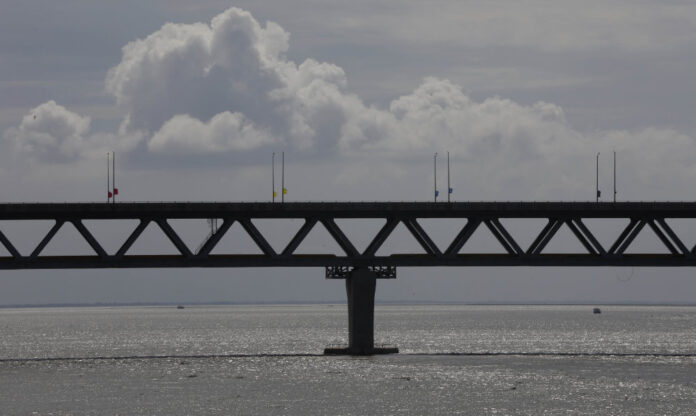DHAKA: Bangladesh unveiled the largest infrastructure project in its history on Saturday.
The 6.15-kilometer Padma Bridge — which spans the river after which it was named — connects Dhaka to the country’s southern regions, slashing the distance between the capital and Bangladesh’s second-largest seaport, Mongla, by 100 kilometers. Journeys that would previously have taken two to three days from the south of the country can now be completed in a few hours, according to Ahsan H. Monsur, executive director of the Dhaka-based Policy Research Institute.
The bridge cost an estimated $3.6 billion to build, all paid for with domestic funding. It will open to the public on Sunday, after an inauguration attended by thousands.
“The bridge belongs to the people of Bangladesh. It showcases our passion, our creativity, our courage, our endurance, and our perseverance,” Prime Minister Sheikh Hasina said at the ceremony in Mawa, about 34 kilometers southwest of Dhaka.
“This bridge is built with the latest technology … The whole construction process has been completed while maintaining the highest standards,” Hasina added.
More than 14,000 workers — including some foreign engineers — took part in the project, which is expected to spur economic growth in the country, as the government plans to build special economic and industrial zones in Bangladesh’s less-developed southern and southwestern region.
“Now that the Padma Bridge has been established, we will have more special economic zones, industrial zones, factories and employment. We will be able to process crops and fish for export. It will put an end to our sorrows and change our fortunes,” Hasina said.
Construction of the bridge began in November 2014. The construction faced several setbacks, including the World Bank pulling funding from the project over concerns about corruption.
That decision prompted other lending agencies, including the Asian Development Bank and the Islamic Development Bank, to distance themselves from the project, leaving Bangladesh to build the bridge with its own funds.
Monsur told Arab News that the bridge is an “iconic investment” for Bangladesh and that it would likely contribute to economic growth.
“People from the southern region are now easily connected with the capital and other regions. The return of this investment can’t be measured considering only financial indexes, it’s something beyond,” he said.
“The country’s gross domestic product may see a growth of more than 1 percent due to the project’s launch,” Monsur continued.
“Bangladesh built the bridge with self-financing and it has a high signaling value. We hope it will bring more foreign investment into the country.”

